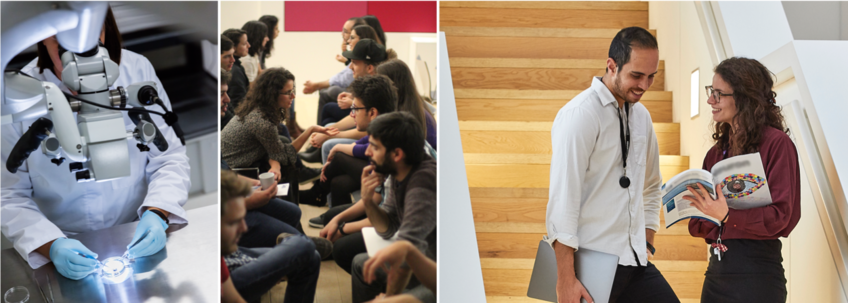
Good Scientific Practice
Our institute places great value on conforming to the highest standards of scientific practice. Scientific honesty and the observance of the principles of good scientific practice are essential in all scientific work that seeks to expand our knowledge and which is intended to earn respect from the public. Some of the elements of good scientific practice are listed below. To insure good scientific practice, the Max Planck Society has established a set of basic rules governing good scientific practice and the actions to deal with scientific misconduct. The basic rules of good scientific practice set out here take into account the relevant recommendations of the Deutsche Forschungsgemeinschaft of January 1998 and adapt them to research conditions at the Max Planck Society. They are binding for all persons active in research work in the Max Planck Society. The ombudsperson, who is elected by all scientific staff members of each institute, provides advice in the event of conflicts related to issues of good scientific practice. Please refer to the respective rules for detailed information about the issues in question. The ombudsperson performs an essential role in scientific self-monitoring. Consultations with them are confidential, as long as a conflict can be solved within the institute concerned. In addition, each one of the three scientific sections of the Max Planck Society has its own Ombudsperson addition.
Principles of Good Scientific Practice
- Science is based on honesty and trust. Scientists must therefore be truthful and honest in their research and follow generally accepted research practices. Misuse of statistical methods or partial reporting of data to influence the outcome of experiments are not allowed.
- Science is a collective effort of a community. Research methods and findings must be accurately and extensively documented so that others can reproduce experiments.
- Acknowledging other researchers work and ideas is essential to create an environment where ideas can be freely exchanged fostering open discussions. Plagiarism (including self-plagiarism) is not allowed.
- Scientists must be open to discussions and criticism about their work. Researchers should maintain an objective opinion of their research and question assumptions.
- Senior scientists have an obligation to mentor younger scientists and help them in their professional development and career.
- Data fabrication, forging and manipulation are not allowed.
- Researchers must support the validation of their research by others and have to respond when others fail to reproduce their results.
- Legislative and regulatory rules must be followed.
- Scientists have an obligation to report suspected misconduct.